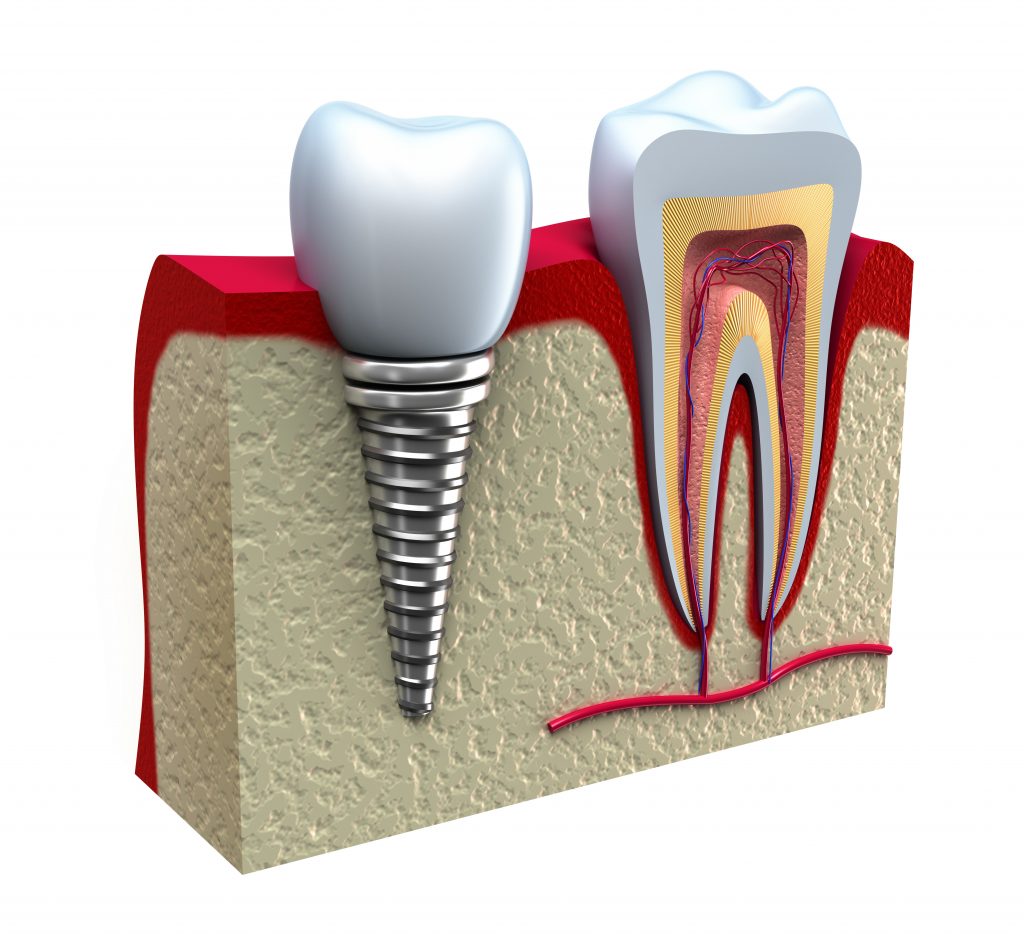

Many people suffer the consequences of having missing teeth, which can range from gaps that prevent you from smiling to difficulty chewing, leading to a less nutritious diet. Surrounding teeth can also shift out of place when gaps are present, increasing the risk of gum disease and furthering tooth loss. To prevent these problems from occurring, it’s important to replace missing teeth with dental implants as soon as possible. Because implants are placed in a patient’s jaw, they preserve both the health and function of your smile.
However, not everyone will immediately qualify for implants. Some patients may experience bone loss due to missing teeth, making them less than ideal candidates. Luckily, bone grafting can help reverse the bone density deterioration to ensure a strong foundation for your dental implant. So even if you’ve been missing teeth for a long time, you can still restore your smile with implants.
Why Would I Need a Bone Graft?
When a natural tooth is present, its roots continually stimulate the jawbone, keeping it strong and healthy. Where a tooth is missing, the jawbone lacks this stimulation and begins to deteriorate and weaken. Patients who have been missing teeth for quite a while often have significant bone loss, which could rule them out as candidates for dental implants. Likewise, people who have opted for other tooth replacement options, such as dentures or dental bridges which sit on top of the gums, may also lack the bone density to support dental implants. This is where a bone graft can help.
What is Bone Grafting?
Bone grafting is a supplemental treatment performed to strengthen the jawbone in preparation for dental implant placement. During this surgical procedure, donated bone tissue is attached to the area of a person’s jawbone that is diminished. After the procedure, the area is allowed to fully heal, giving the bone graft time to fuse with the surrounding bone, creating a strong foundation for the dental implant.
Explore Supplemental Treatments in Oakville, ON
If treatment is postponed, bone loss will continue, making it more difficult to receive dental implants in the future. That’s why it’s important to seek out tooth replacement with implants as soon as possible after losing a tooth. Contact Dr. Zajac today to schedule a consultation to find out if dental implants are the right tooth replacement option for you. He will determine if you are in need of a supplemental treatment, such as bone grafting or gum disease treatment, so you can get the dental implants you need to restore your smile.